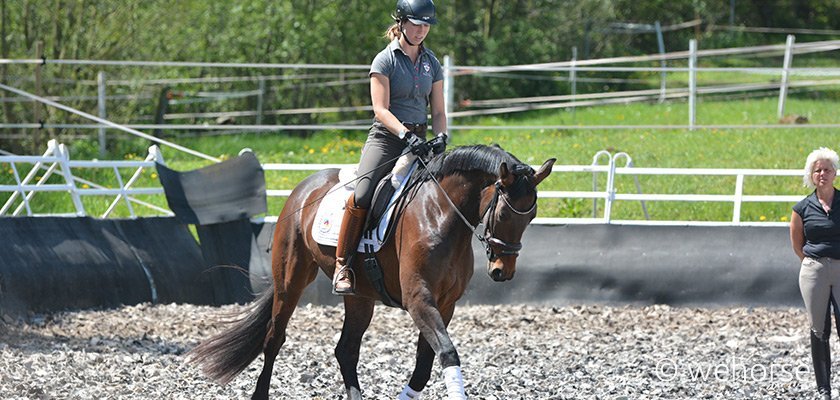Horses, majestic and fascinating creatures, have been companions to humans for centuries. However, like any other animal, they can exhibit horse behavioral issues that can be challenging for their owners. Understanding these issues is crucial for maintaining a harmonious relationship with these noble animals.
In this article, we will delve into the common horse behavioral issues, their causes, and effective strategies to address them. By doing so, we aim to equip horse enthusiasts with the knowledge needed to create a positive and nurturing environment for their equine friends.

Common Horse Behavioral Issues
1. Aggression in Horses
Aggression can manifest in various forms, such as biting, kicking, or charging. Understanding the root cause of aggression is essential to address it effectively. Often, aggression stems from fear, pain, or a lack of trust in humans.
2. Separation Anxiety
Horses are naturally herd animals, and being separated from their companions can lead to anxiety. Addressing separation anxiety requires gradual training and creating a comforting environment when they are alone.
3. Barn Sourness
Also known as being ‘barn sour,’ this issue arises when a horse is reluctant to leave the stable or barn. This behavior often stems from insecurity and can be addressed through consistent training and exposure to new environments.
Understanding the Causes
4. Environmental Factors
The environment plays a significant role in shaping a horse’s behavior. Factors such as inadequate space, lack of social interaction, and changes in routine can contribute to behavioral issues. Ensuring a stable and enriching environment is crucial for their well-being.
5. Health Issues
Sometimes, behavioral problems may be a symptom of underlying health issues. Regular veterinary check-ups are essential to rule out any medical conditions that could be affecting the horse’s behavior.
6. Lack of Training
Proper training is vital to prevent and address behavioral problems. Horses require guidance and structure to understand what is expected of them. Training sessions should be positive and consistent.
Strategies to Address Horse Behavioral Issues
7. Positive Reinforcement
Using positive reinforcement techniques, such as treats and praise, can encourage desired behaviors. This approach helps build trust between the horse and the handler.
8. Desensitization Training
Gradually exposing horses to various stimuli can help reduce fear and anxiety. Desensitization training is an effective method to address issues like spooking and nervousness. For more detailed guidance, you can explore Horse Trail Desensitization.
9. Consistent Routine
Maintaining a consistent daily routine helps horses feel secure and reduces anxiety. Consistency in feeding, exercise, and handling can prevent behavioral problems from arising.
The Importance of Patience
10. Building Trust
Building trust with a horse takes time and patience. Spending quality time with your horse and understanding their unique personality is essential for addressing behavioral issues.
11. Seeking Professional Help
If behavioral problems persist, seeking the assistance of a professional horse trainer or behaviorist can be beneficial. They can provide expert guidance tailored to your horse’s specific needs. A great resource can be found at Horse Training Tips for Beginners.
Preventing Future Behavioral Problems
12. Early Socialization
Introducing horses to various environments, people, and other animals at an early age can help prevent future behavioral issues. Early socialization builds confidence and adaptability.
13. Regular Exercise
Regular exercise is essential for a horse’s physical and mental well-being. Ensuring that your horse gets enough exercise can prevent boredom-related behavioral problems. For more information, check out Horse Training Sessions Timing.
14. Understanding Body Language
Learning to read a horse’s body language can provide valuable insights into their emotional state. Understanding cues like ear position and tail movement can help you anticipate and address potential issues.
Conclusion
15. A Harmonious Relationship
Understanding and addressing horse behavioral issues is a journey that requires patience, knowledge, and dedication. By creating a supportive environment and using effective training techniques, horse enthusiasts can foster a harmonious relationship with their equine companions.
For additional tips on training your horse, visit Horse Training Tips.

FAQ
What are common horse behavioral issues?
Common issues include aggression, separation anxiety, and barn sourness. Understanding the causes is key to addressing these behaviors effectively.
How can I address aggression in horses?
Aggression can be managed by identifying the root cause, such as fear or pain, and using positive reinforcement to encourage better behavior.
Why is my horse anxious when alone?
Horses are herd animals and can experience anxiety when separated from their companions. Gradual training and creating a comforting environment can help ease separation anxiety.
This article contains affiliate links. We may earn a commission at no extra cost to you.








